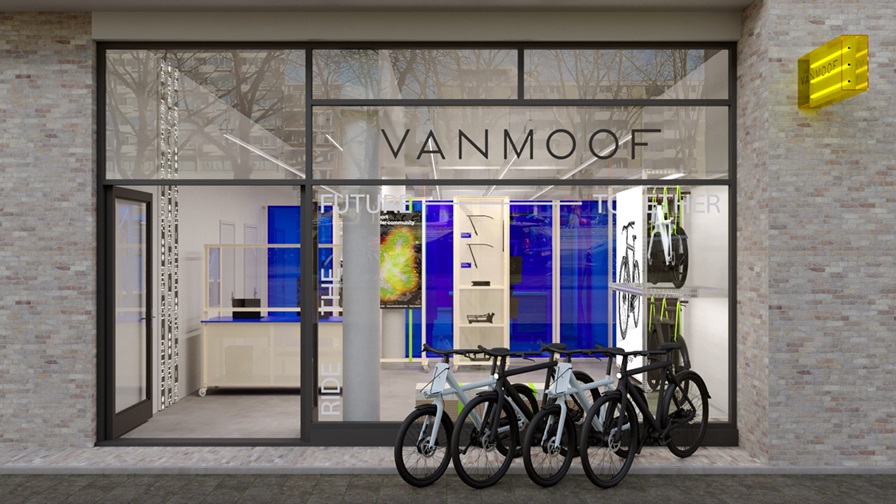The rise and subsequent bankruptcy of VanMoof, once hailed as the Tesla of electric bikes, has captured headlines in the business world, shining a spotlight on the Netherlands’ entrepreneurial spirit.
Founded by two Dutch brothers, VanMoof gained fame for its sleek e-bikes, which seamlessly integrated bulky batteries into their designs, creating a stylish mode of transportation that resonated with a global audience of 200,000 enthusiasts. However, the company’s rapid ascent was followed by a swift descent into bankruptcy late last year.
Despite this setback, VanMoof’s trajectory mirrors the entrepreneurial landscape of a country that has given birth to global giants like Booking.com and Philips. Vilma Chila, a professor of entrepreneurship and innovation at the University of Amsterdam’s business school, believes that while VanMoof’s demise made headlines, it’s important to recognize the thriving nature of Amsterdam’s business scene, which hosts 65% of all venture-backed startups in Western and Northern Europe.
The Netherlands plays a significant role in Europe’s startup ecosystem, fostering a culture that encourages risk-taking, attracting skilled talent from around the world through its universities, and maintaining a government that is supportive of entrepreneurs. Compared to the slower-paced entrepreneurship cultures of France and Germany, the Dutch approach aligns more closely with America’s fast-paced capitalist ethos, positioning Europe to potentially become a global leader in entrepreneurship. However, the Netherlands faces challenges such as growing anti-immigrant sentiment and a track record of struggling to scale up businesses.
Dr. Chila attributes the Dutch entrepreneurial spirit to the country’s history as sailors and traders, with a tradition of business expansion. Amsterdam, already one of Europe’s fastest-growing startup hubs, is expected to see the market cap of Netherlands-founded startups reach €400 billion this decade.
The city’s appeal as a startup hub is bolstered by its infrastructure, including the European Union’s second-largest airport and its attraction of United Kingdom-based companies relocating after Brexit. Additionally, the Dutch university system attracts global talent, with individuals like Satya Ankur choosing to pursue studies in Amsterdam due to its openness and egalitarian culture.
Post-graduation, Amsterdam offers a range of entrepreneurship programs and grants, providing support for aspiring entrepreneurs. Jonathan Sitruk, another professor at the University of Amsterdam, highlights the cultural support for startups, noting a romanticism around entrepreneurship and a societal acceptance of trying new ventures.
The Dutch business environment is characterized by minimal bureaucracy, with companies easily established in a short timeframe, irrespective of language proficiency. This pragmatic approach values experimentation over fear of failure, creating an atmosphere conducive to innovation.
Despite VanMoof’s failure to scale, the Netherlands boasts strengths in sectors like health, fintech, electric mobility, life sciences, and sensor technology. However, the rapid growth of businesses and influx of talent have strained Amsterdam’s resources, leading to challenges such as high housing costs and proposals to limit foreign enrollment in colleges to manage internationalization.
Erik Stam, a professor of entrepreneurship at Utrecht University, emphasizes that migration has historically been beneficial for the Dutch economy, tracing back to the Golden Age of the 17th century. He warns against overlooking this aspect of Dutch success amidst growing anti-migration sentiments.
Another challenge for the Netherlands is the relatively lower number of startups that successfully scale up to become unicorns. Despite a strong ecosystem and ample venture capital, the country lags behind in producing scale-ups and unicorns compared to its overall strength in the startup scene.
VanMoof’s story serves as a cautionary tale, but also as a testament to Dutch innovation and entrepreneurship. Colin Westerwoudt, an Amsterdam-based entrepreneur, compares VanMoof to Tesla, noting that both faced initial challenges but ultimately contributed to advancing their respective markets. He urges pride in VanMoof’s innovation and its influence on other companies.
Overall, experts believe that the Netherlands is poised for further entrepreneurial growth, with ample opportunities to address societal challenges through innovative ventures. Dr. Stam sees the country as a laboratory for entrepreneurial experiments, highlighting its room for creativity and appreciation of innovation as key strengths.
(Source: TCSM | Everand)









